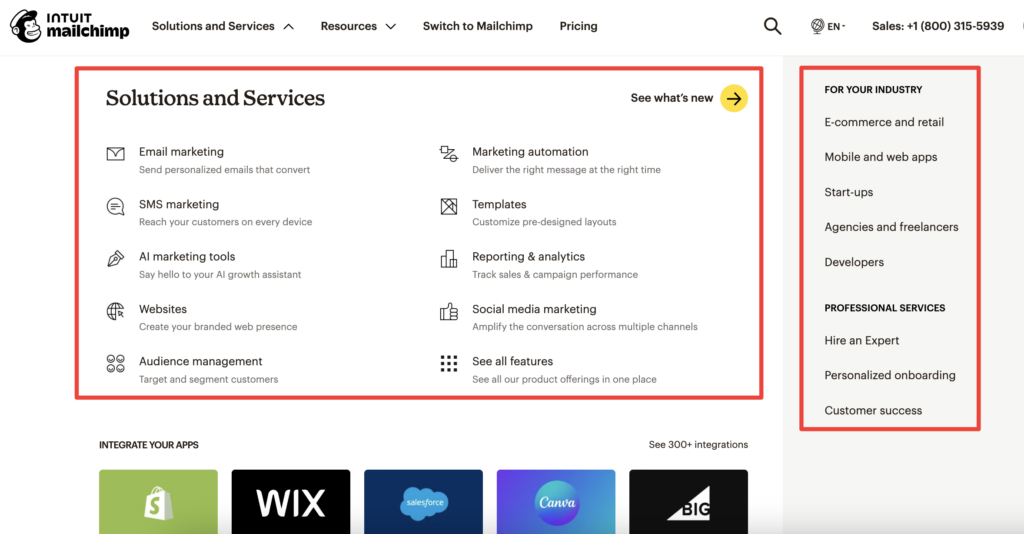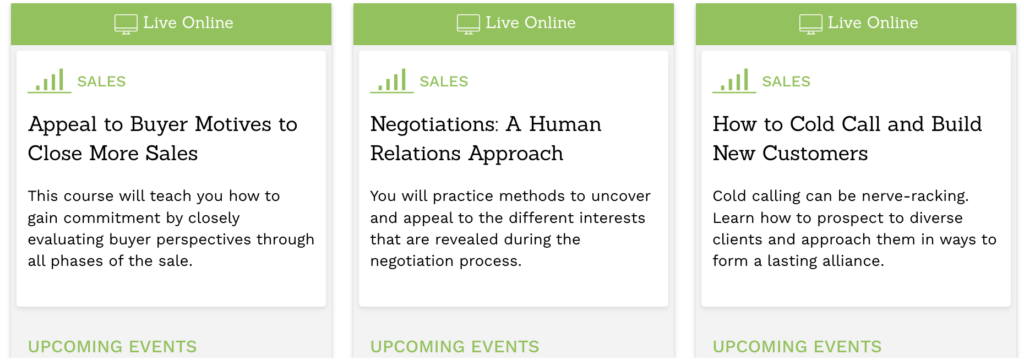Finding and retaining quality sales talent is a constant challenge. Even with all of your ducks in a row, you’ll inevitably encounter issues at some point. Therefore, it’s not enough to be reactive with your recruiting, where you find yourself scrambling to fill a position. You need to be proactive and build a sales talent pipeline to ensure you have a steady stream of qualified candidates at all times.
In this post, I’ll highlight what I’ve found to be the most effective and practical strategies for developing a sales talent pipeline so that you don’t find yourself in a bind.
Show Sales Candidates Why They Should Choose You
Before doing anything else, it’s important to show sales candidates that your company is the one they want to work for.
- What makes your company stand out above your competitors?
- What makes it special?
- Why should sales professionals want to develop their careers with you?
These are just a few questions you should answer for candidates so that when you pique their interest they’ll want to take the next step and apply with you. There’s a lot that goes into this, but it starts by striving to improve your company culture and focusing on reputation management.
Create a Dedicated Careers Page
In the past, very few companies had a dedicated careers page, and it was typically reserved for larger enterprises with deep pockets. But I’ve noticed a significant increase in recent years, where a growing number of small and mid-sized companies are now using this strategy as well.
I like a dedicated careers page for two main reasons. First, it actively recruits for you. Through search engine queries, sales candidates can find your company, learn more about you, and apply. It basically acts as an automated recruiting funnel.
Rather than having to post on multiple job boards every time you need to fill a position, sales candidates can come to you. Take SaaS productivity and note-taking company Notion for example. Their careers page is set up so candidates can find them through search engines, social media, and other digital outlets.
And after landing on that page, candidates can get a basic overview,…
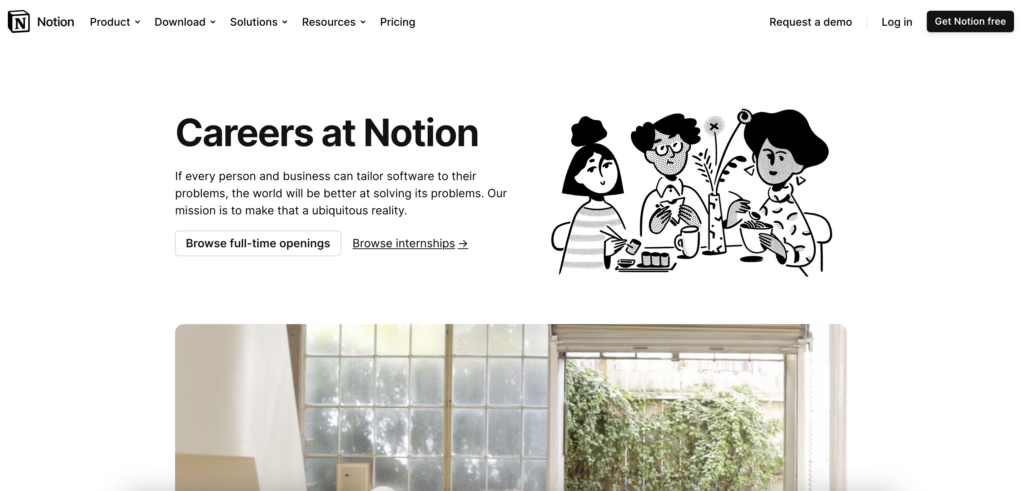
…learn about Notion’s story,…
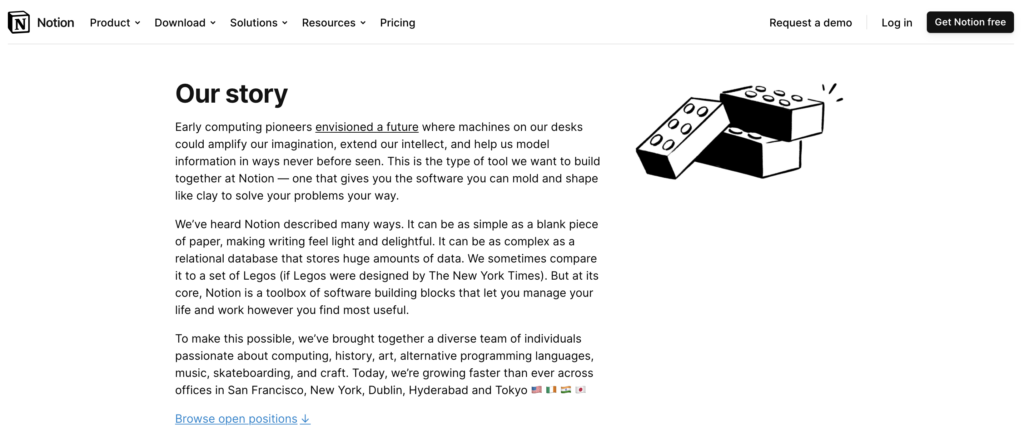
…and check out open sales positions.
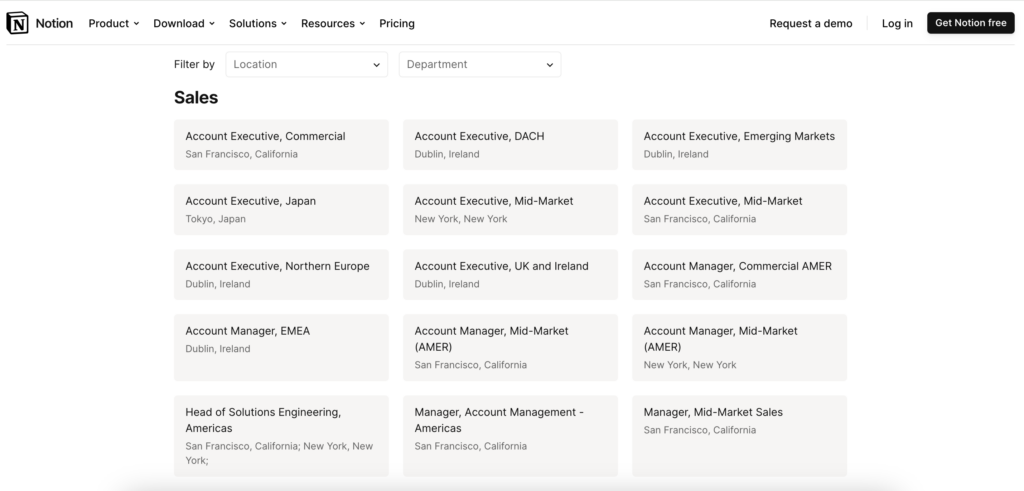
So if you haven’t gotten around to creating a dedicated careers page yet, I highly suggest doing so. Here’s a basic guide for getting started.
Improve Your Social Media Presence
Another way to build brand equity while simultaneously funneling candidates into your sales talent pipeline is by going all in on your social media. By this, I don’t mean simply slapping up an occasional post on Facebook. I’m talking about putting together a full-scale campaign that targets consumers, as well as sales candidates.
Let’s look at Notion again for an example. They have an impressive social media presence, with 324k followers on Instagram, 267k subscribers on YouTube, and 551k followers on LinkedIn.
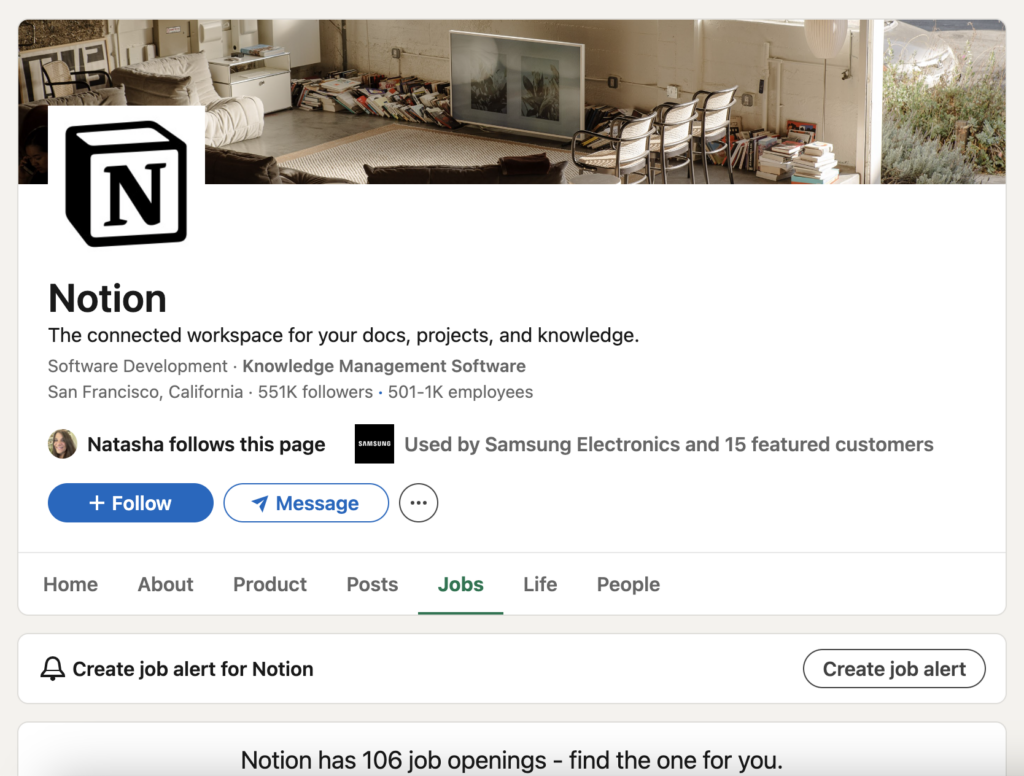
On their LinkedIn page, users can learn about their company, check out their LinkedIn posts (something that establishes thought leadership), see what employee life is like at Notion, and look at recent job openings.
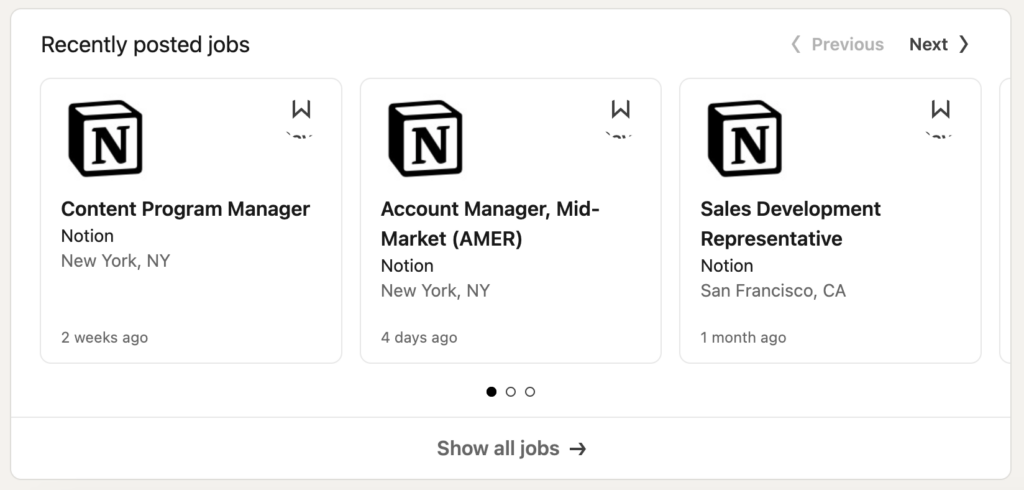
From there, users can learn more about job opportunities and apply directly from LinkedIn.
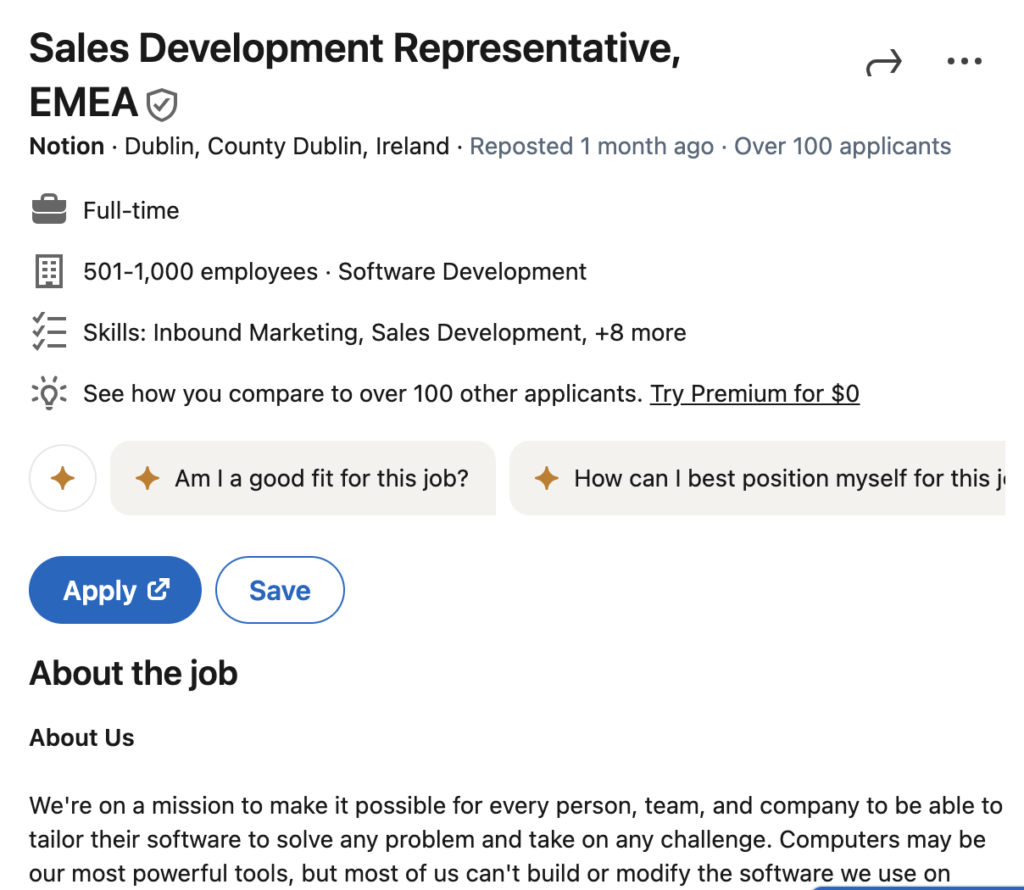
Through this social media campaign, Notion can build their reputation while seamlessly connecting with professional sales candidates. It’s baked right into their campaign.
And while you can’t necessarily expect to build a following quite this size, it shows how social media kills two birds with one stone and can send a steady stream of sales candidates coming your way.
Encourage Referrals
You may already know that salesperson referrals can have a big impact. To quantify:
- “Referred employees are 18% more likely to be satisfied with their jobs.”
- “Referral hires are 40% more likely to be retained after one year than non-referral hires.”
- “$7,500 is the amount of money saved in productivity and sourcing costs when hiring a referral.”
Besides massively increasing salesperson satisfaction and retention and decreasing costs, referrals are also an excellent way to build a sales talent pipeline.
So at the very least, I suggest encouraging your existing salespeople to send vetted candidates your way. Even if you don’t need to make a hire right away, this will provide you with a list of candidate profiles that you’ll have at your fingertips whenever a position does open.
And if you want to go all in, you can create an employee referral program, which you can learn about here.
Offer Career Development Opportunities
Finally, hiring from within can ensure you always have a short list of top-tier candidates at the ready for mid and upper-level positions. While this won’t necessarily help with hiring entry-level sales reps, it’s perfect when hiring for more advanced positions and gives you access to salespeople you know and trust.
And here’s the kicker. Salespeople who are hired from within stay an average of 41% longer than those who are hired from outside. Further, 69% of companies who hire internally say they’re able to bring those team members to a positive state more quickly.
Not to mention, salespeople who have a legitimate opportunity to climb the ranks tend to work harder and be more invested in their jobs than those who don’t. By taking a hiring-from-within approach to recruiting, you not only have immediate access to high-quality salespeople, it also helps strengthen your overall culture at the same time, for the ultimate win-win.
Building a Strong Sales Talent Pipeline From the Ground Up
While it’s impossible to never feel hiring stress, constructing a sales talent pipeline in the way we discussed here can dramatically lower your chances of running into issues. Instead of waiting until someone leaves or you need to scale up, having processes in place should ensure you always have access to a pool of amazing candidates.
Speaking of amazing candidates, register with HireDNA today to use our all-in-solution to attract, recruit, and retain the best of the best.



